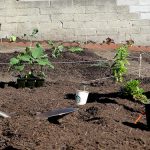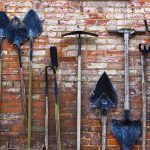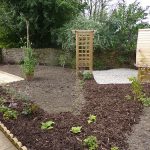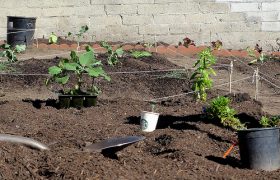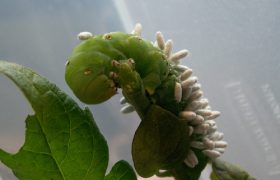Take the time to know your soil. Get it analyzed. This will let you know what is in your soil and in what areas the soil may be deficient. You can then buy the missing nutrients to add into your soil which will help maximize your crops! Many local universities that have agriculture departments have the ability to test your soil for a small fee.
Make sure you recycle your garden waste and organic kitchen waste to create compost for your garden. A compost heap makes an excellent soil conditioner. It can also save you a lot of money, as you won’t need to buy bags of expensive commercial compost or fertilizer to make your plants grow.
To give your plant great nutrition without spending a lot of money, use leaves! Leaves are one of the best plant foods available. Try covering any exposed soil in your garden with small, shredded leaves. This will enrich the soil and will allow it to provide better nutrition to your plants.
If your flower beds have diseased or dead plants in them, it is best to remove them as soon as possible to prevent the spread of disease. It is a good idea to clean out your flower beds in the fall so that the soil will benefit from freezing over the winter by killing the pests or disease-causing organisms in the soil. Cleaning out your beds in the fall will help prevent the spread of disease to your spring flowers.
Choose certain plants for shady areas. All plants need light to survive, but not all of them require bright sunshine. Woodland natives, for example, are happiest when given a little protection from the sun’s rays. Be generous when enriching the soil if the plants are under a canopy of trees, as they are competing for the food supply with the big guys! Ajuga, anemone, foxglove, cyclamen, hosta, viola and allium all enjoy a shady area.
When taking an organic path to control garden pests, try to build up the soil to allow healthy microbes to flourish. Earthworms are also very important to organic gardening and they should be encouraged to stay in the soil. When the soil is unhealthy, it is not as resistant to pests.
Economize when watering. When watering your garden, try to water using a vessel instead of a hose: this way you will be able to direct the water straight to the roots. Using a hose means that a lot of water will end up on the leaves, and may evaporate before it has a chance to reach the soil. Only water in the early morning or late evening, as this can help to reduce evaporation. Whenever you plant something new, it will require constant watering to become established, so if possible, put off new planting until the Fall. This way, nature will be able to do much of the watering for you.

